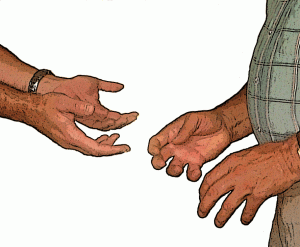 What is depression? There’s an epidemic of depression in our society today. Antidepressant medications are among the most prescribed categories found in pharmacies today. How can you determine if you are depressed? Here are some symptoms:
What is depression? There’s an epidemic of depression in our society today. Antidepressant medications are among the most prescribed categories found in pharmacies today. How can you determine if you are depressed? Here are some symptoms:
- Persistent sadness or tearfulness, often accompanied by irritability.
- Loss of appetite, or, paradoxically, episodes of binge eating.
- Problems with sleeping. If there’s also anxiety, you would have trouble getting to sleep or staying asleep. If you have no anxiety, you may sleep too much. In either case, you don’t feel rested or alert during the day. There’s little or no motivation to do normal things.
- Distractedness, forgetfulness or feeling spacey and disconnected.Life seems dreary, flat and uninteresting. Things you normally enjoy are not appealing, and life seems to be a series of unenjoyable chores.
- You’re not particularly social, either because you feel unworthy, or because other people seem to just be uninteresting.
- There may be persistent negative thoughts of unworthiness, failure or feeling overwhelmed with doing the normal things of life.
- In extreme cases life may seem meaningless.It’s not unusual for a depressed person to experience morbid thinking, wondering if life is worth the effort, or whether anyone would care if you weren’t around. In extreme cases, there may be thoughts or plans of suicide. If you have morbid thoughts, that’s not dangerous, just uncomfortable—come see one of us and talk about it.
- If you are having suicidal thoughts or plans, please tell a loved one and call 911 or go see a physician right away. It’s an emergency at that point! Depression is a disease, not a death sentence. It’s very treatable, but suicide prevents treatment from being effective.
There are two basic categories of depression—major depression, which is quite disabling and emotionally painful, and dysthymic disorder, which is a chronic, low grade depression that lingers for years, perhaps decades. Dysthymia can be one of the lingering effects of a dysfunctional childhood.
What can be done about depression? As mentioned above, depression is treatable. The sooner you seek help, the easier it is to overcome the disease. Here are some well?established strategies for overcoming depression:
Make an appointment to talk to one of us. One of the most disabling symptoms of depression is feeling hopeless about life getting better. We can help, but you must let us know what’s happening.
Regular exercise is a great antidote for depression. Going for daily walks of 30 minutes or more have been shown to be very effective, especially to prevent depressive relapse.
Talk therapy has many benefits. We can help you identify unrealistic and self defeating thoughts and substitute more beneficial thoughts. This is called “cognitive therapy” and is proven to be quite effective at alleviating the symptoms of depression.
Laughter makes a difference. Join a laughing club. Watch a funny video or whatever gets you going. Even forced laughter will help until the real thing comes bursting out.
Another well?established intervention for depression is “interpersonal therapy”, which relies on the quality of trust and emotional empathy in the therapeutic relationship to provide benefit.
Tidy your living space. A messy home makes depression worse. If depression makes it impossible for you to take action, get a friend to come over or hire a professional.
Research shows the most reliable and enduring recovery from depression combines talk therapy with antidepressant medication. Most research indicates that taking medication without talk therapy increases the likelihood of depressive relapse after ending the medication. The medication does allow you to hear and apply what we might recommend more effectively, because the prescription increases your motivation, and decreases feelings of hopelessness, irritability and sadness.
Research indicates that depression is a relapse?prone disease, somewhat like malaria or alcoholism. This is not hopeless, however. The more you apply yourself to the suggestions we make during your talk therapy sessions, the less likely relapse will occur. In fact, the end results might be that you’re more effective and more joyful than you’ve ever been!